Are you concerned about your heart health? Regular cardiovascular health checks are essential for early detection and prevention of heart-related issues. These check-ups can provide valuable insights into your overall well-being and help you make informed lifestyle choices. Join us as we explore the importance of these health checks and how they can benefit youâlet's dive deeper!
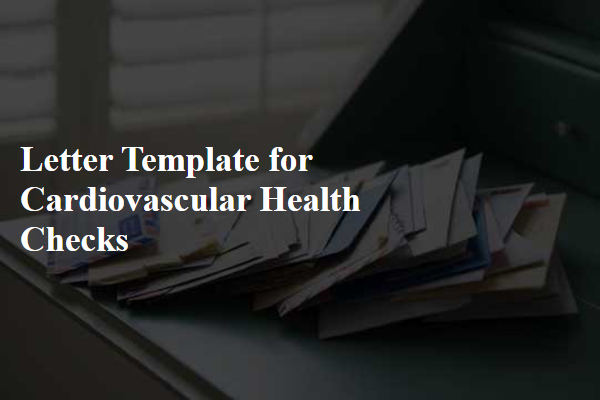
Personalization and patient identification
Cardiovascular health checks are crucial for individuals aiming to maintain optimal heart wellness, particularly those at risk due to factors such as age (over 45 for men, over 55 for women), obesity (BMI above 30), sedentary lifestyle, or family history of heart disease. Personalized assessments can include blood pressure readings, cholesterol level tests, and blood glucose evaluations, all essential for determining overall cardiovascular risk. Specific measurements such as systolic and diastolic pressure, LDL and HDL cholesterol thresholds, as well as HbA1c values provide a comprehensive view of a patient's heart health status. Identifying patients through demographic information, such as their medical history and lifestyle habits, can enhance targeted prevention strategies. Regular screening events at local health facilities can facilitate these evaluations, encouraging proactive management of cardiovascular health.
Purpose and importance of health check
Routine cardiovascular health checks serve a critical function in maintaining optimal heart health and preventing cardiovascular diseases, which are among the leading causes of mortality globally. Regular evaluations, such as blood pressure measurements (optimal levels below 120/80 mmHg), cholesterol screenings (ideal total cholesterol under 200 mg/dL), and blood glucose assessments (normal fasting levels around 70-99 mg/dL), enable early detection of risk factors. These checks can identify conditions like hypertension, hyperlipidemia, and diabetes that exacerbate heart disease. Moreover, educating individuals about lifestyle modifications--such as a balanced diet emphasizing fruits, vegetables, whole grains, exercise recommendations of 150 minutes per week of moderate aerobic activity, and stress management techniques--can be pivotal in reducing the prevalence of heart-related ailments. Early intervention through regular check-ups fosters better long-term outcomes, ultimately enhancing quality of life and extending lifespan.
Key cardiovascular health metrics
Cardiovascular health checks are essential for monitoring key metrics that indicate the overall health of the heart and blood vessels. Blood pressure, a critical measurement indicating the force of blood against artery walls, should ideally be below 120/80 mmHg for optimal health. Cholesterol levels, particularly low-density lipoprotein (LDL) and high-density lipoprotein (HDL), play a significant role in assessing risk for heart disease; LDL should be less than 100 mg/dL, while HDL should be above 60 mg/dL for preventative health. Additionally, measuring body mass index (BMI), a calculation based on height and weight, assists in evaluating obesity levels, with a healthy range being 18.5 to 24.9. Regular assessments of blood glucose levels, ideally under 100 mg/dL when fasting, identify risks for diabetes, which is closely linked to cardiovascular health. Engaging in physical activity, managing stress, and maintaining a balanced diet rich in fruits and vegetables are crucial lifestyle factors that support these metrics and contribute to long-term heart health.
Appointment details and instructions
Cardiovascular health checks play a crucial role in assessing heart health, particularly for individuals aged 40 and older or those with risk factors such as hypertension and diabetes. Scheduled appointments at reputable healthcare facilities, such as the American Heart Association accredited centers, will involve comprehensive examinations including blood pressure readings, cholesterol level assessments, and electrocardiograms (ECGs) to evaluate heart rhythm. Patients should arrive 15 minutes early to complete necessary paperwork and have a tailored discussion about personal health histories with medical professionals. Instructions typically include fasting for 9-12 hours prior to blood tests, while bringing a list of all current medications to ensure accurate readings. Attendees are encouraged to wear comfortable clothing suitable for physical activity, as some tests may require mild exercise to assess cardiovascular response. Follow-up appointments may be recommended based on initial findings, ensuring ongoing monitoring and management of overall heart health.
Contact information for queries and rescheduling
Cardiovascular health checks are essential assessments designed to evaluate the heart's function, blood pressure levels, and overall vascular health. These evaluations typically include measurements such as cholesterol levels (ideal range: less than 200 mg/dL) and body mass index (BMI), which should ideally fall between 18.5 and 24.9. Appointments for these health checks might take place at accredited medical facilities, such as community hospitals or specialized cardiology clinics, aiming to promote heart health among populations at risk. Individuals are encouraged to reach out for inquiries about results or future scheduling, often using contact numbers like (555) 123-4567 for assistance. Notably, rescheduling opportunities are typically available within a 48-hour notice period to ensure continuous monitoring of cardiovascular health.
Letter Template For Cardiovascular Health Checks Samples
Letter template of referral for specialized cardiovascular health assessments
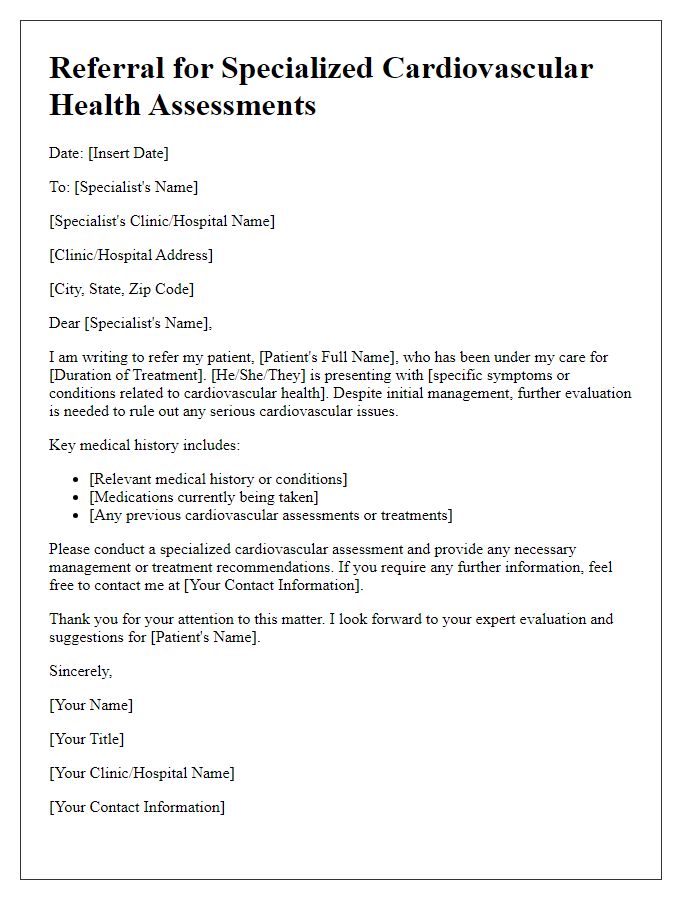

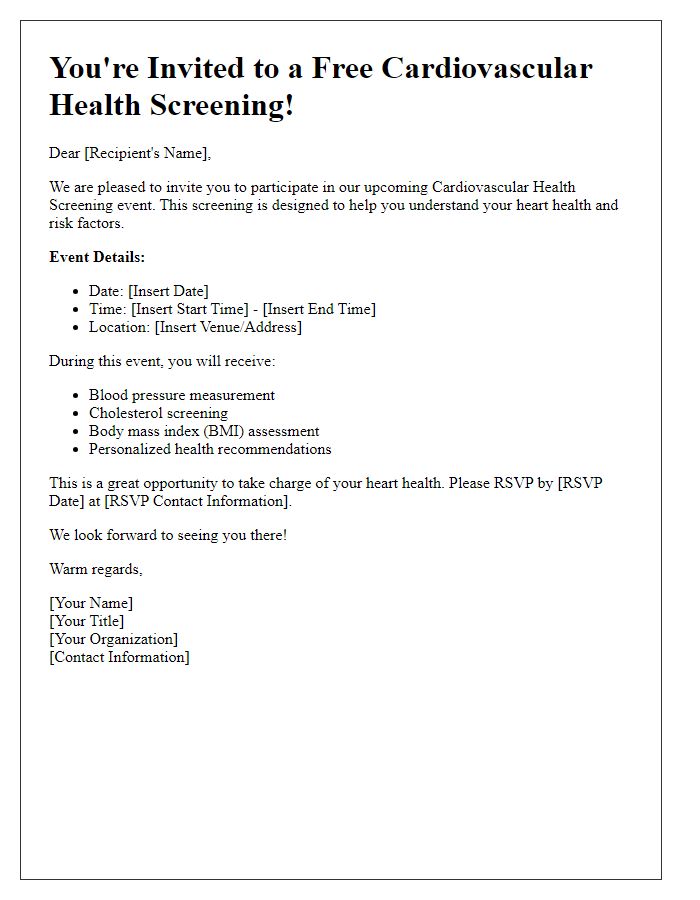
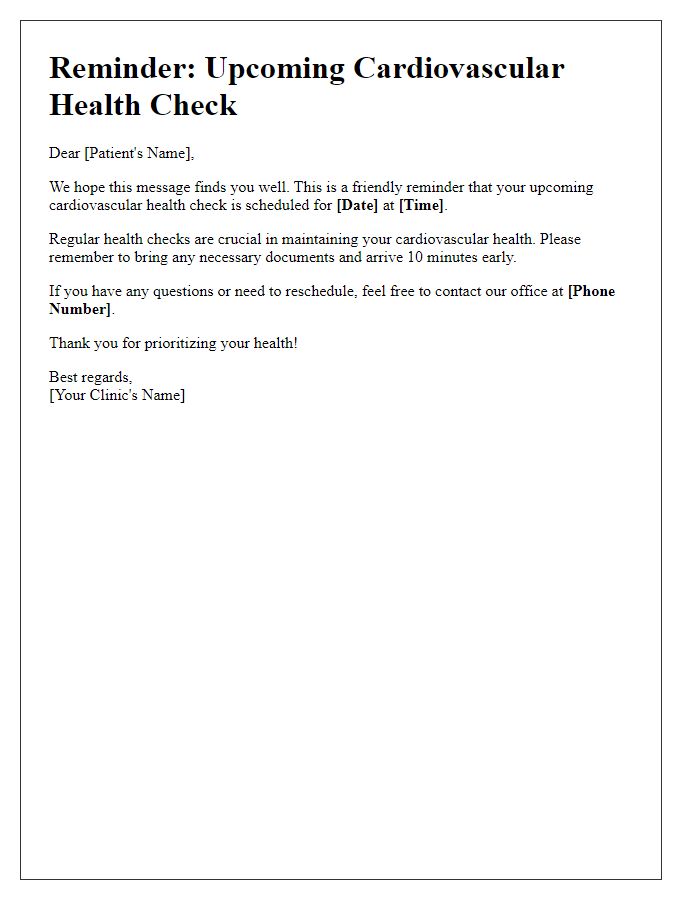
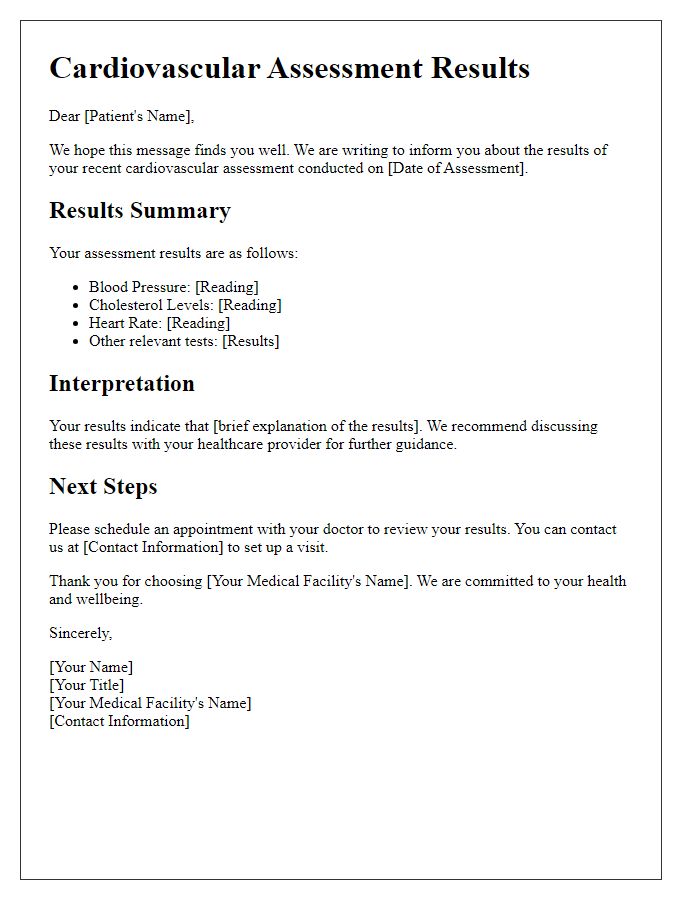
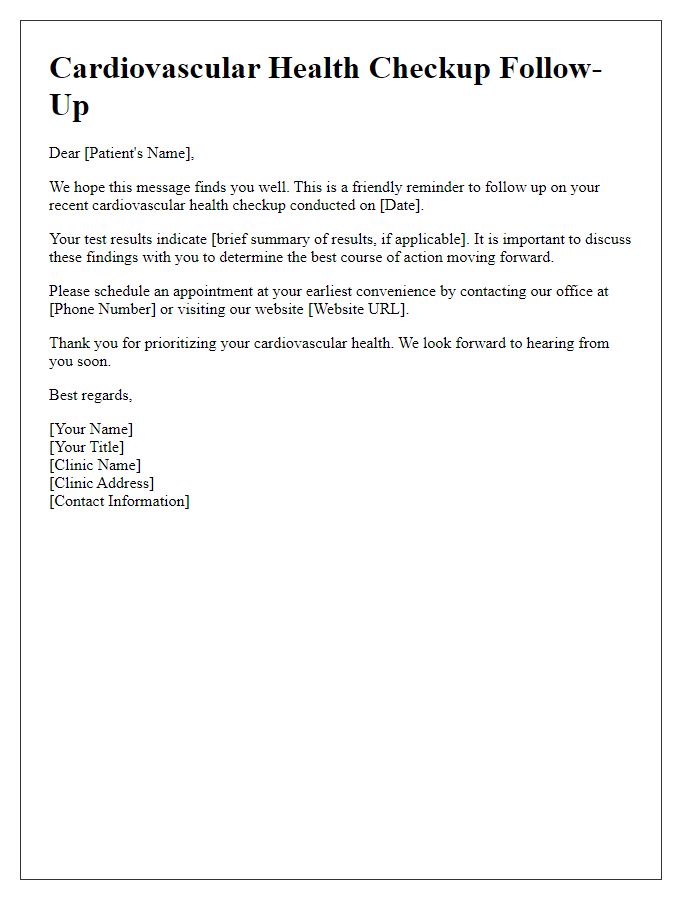
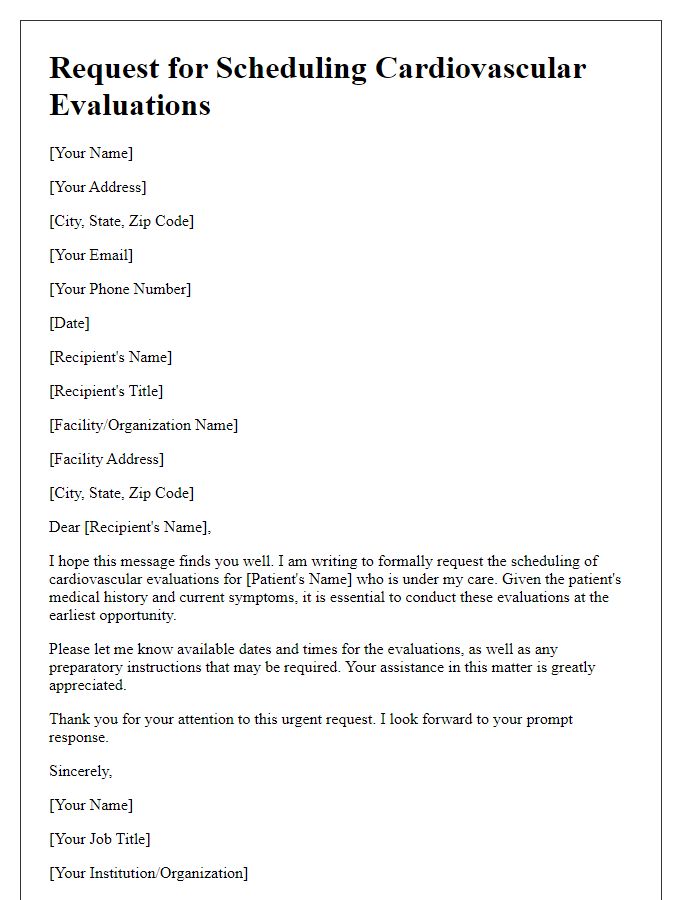
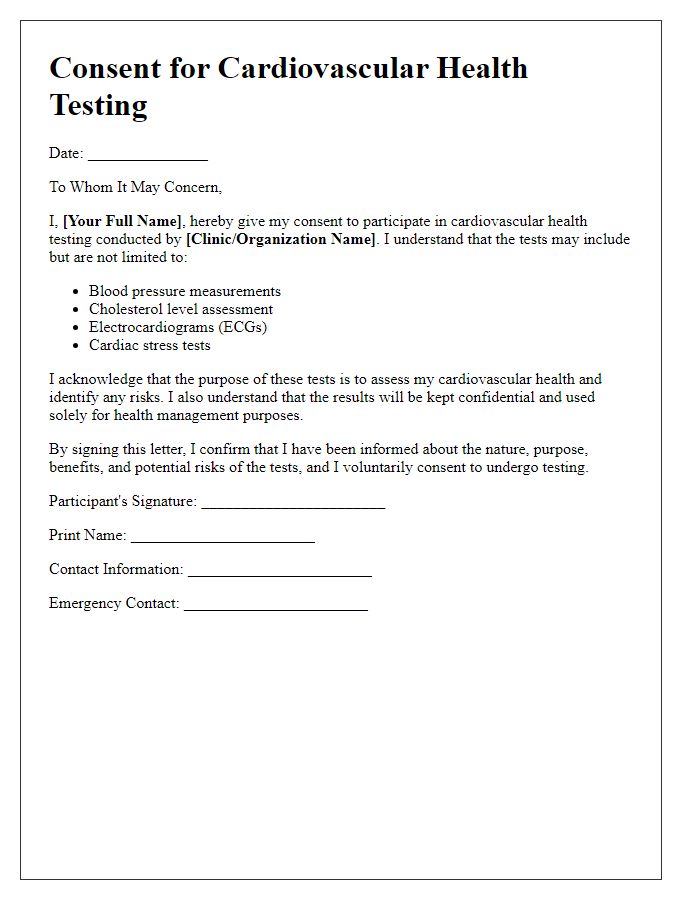
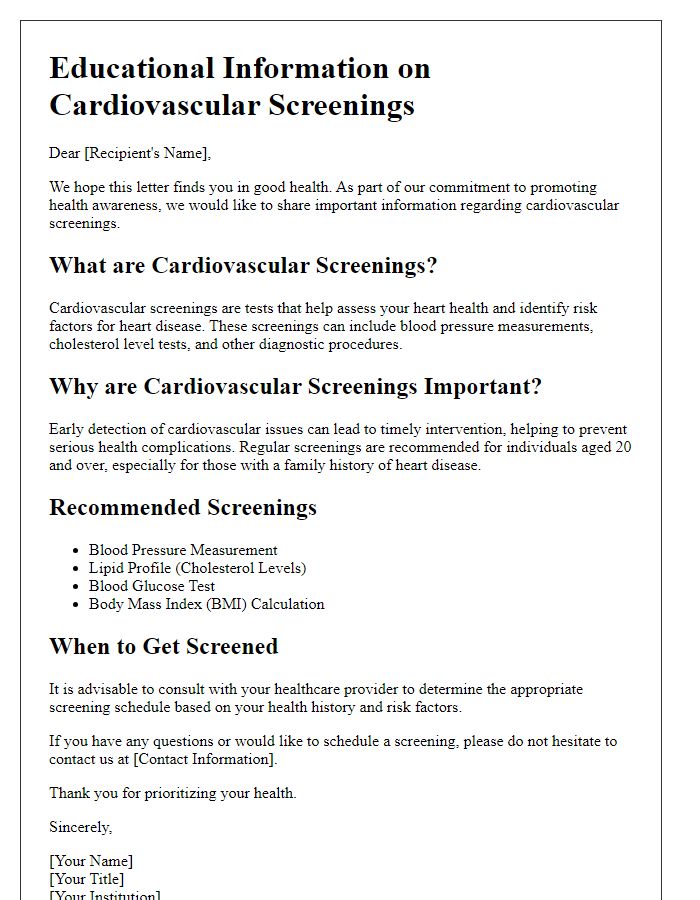
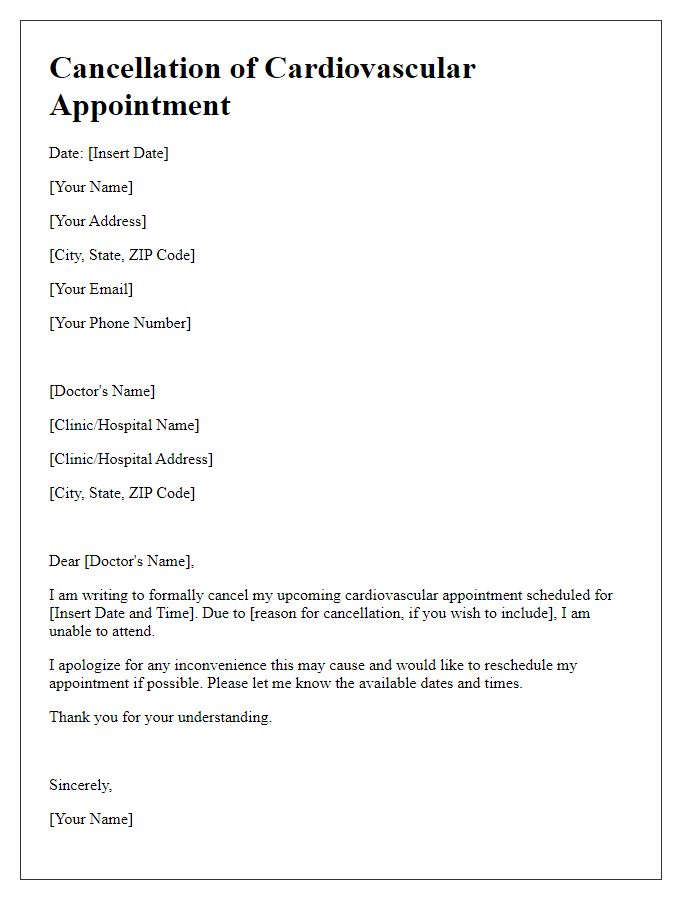
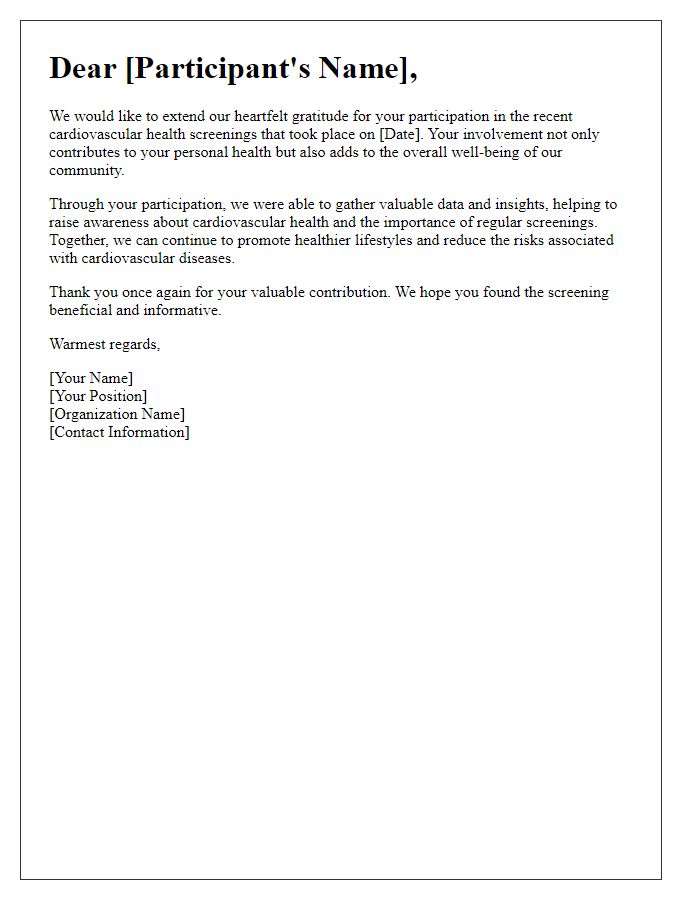

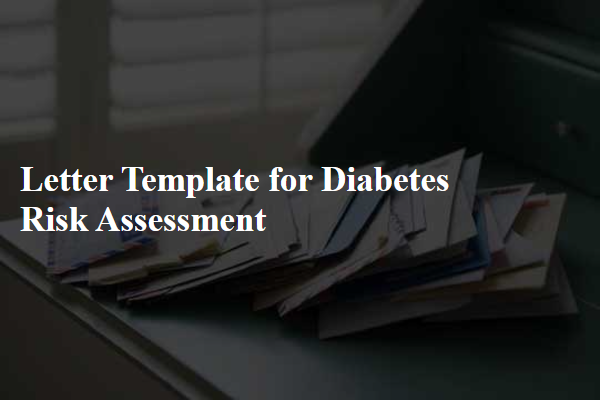
Comments